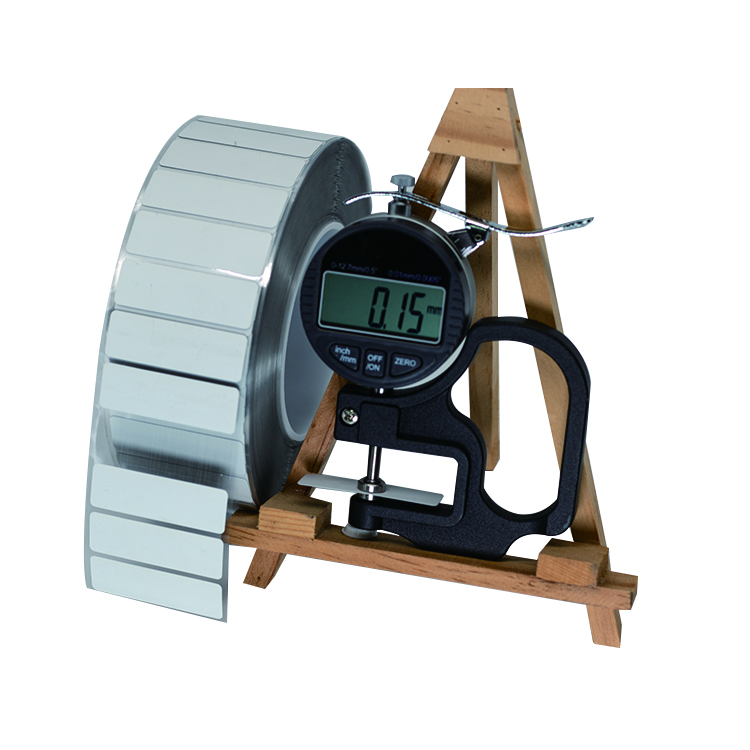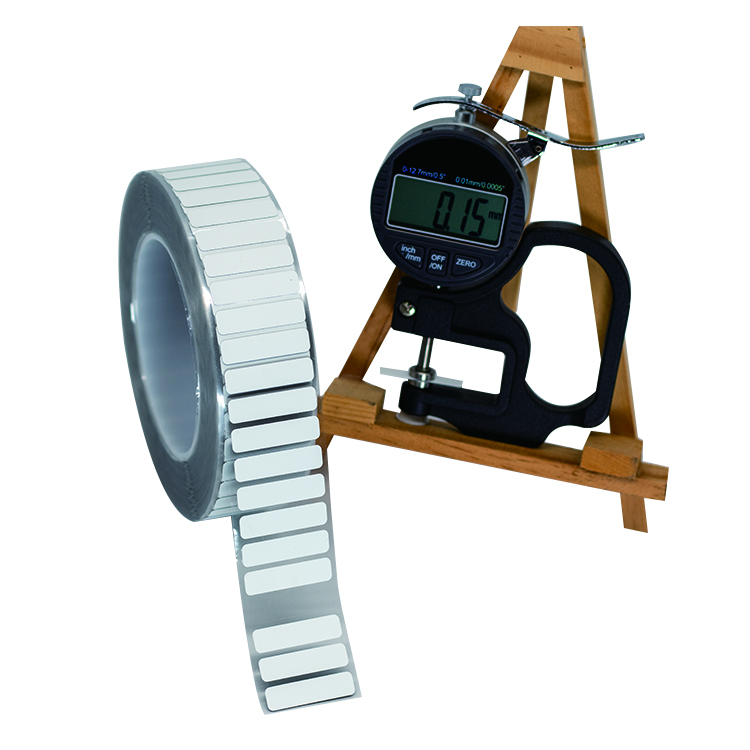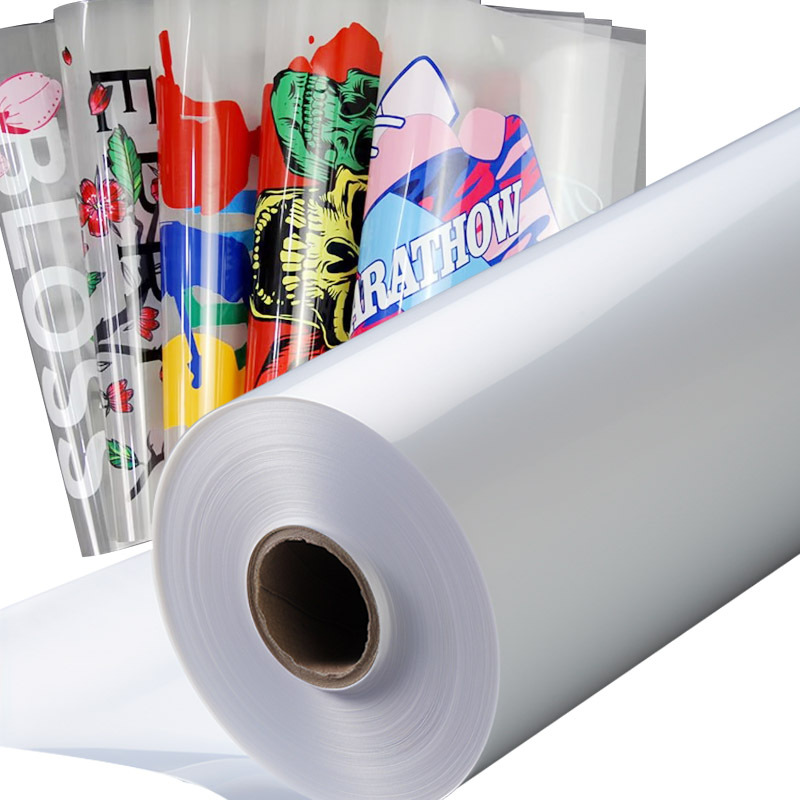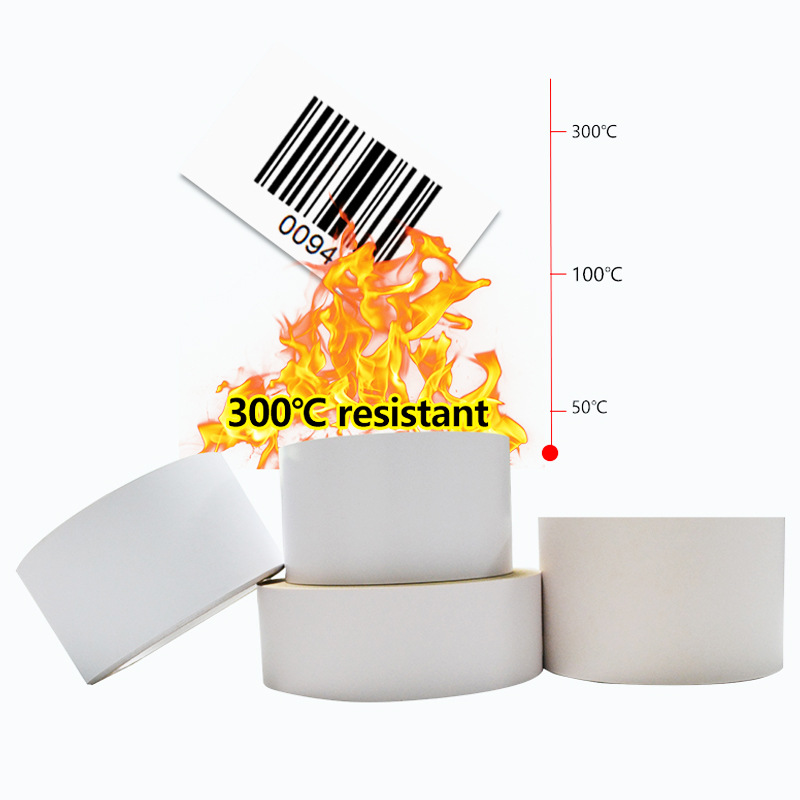
125um car tire vulcanization label
Excellent high-temperature stability, enduring the heat and pressure (up to 210℃) during tire usage and sulfur treatment.
Outstanding durability and wear resistance.
Excellent chemical resistance: Strong waterproofing, resistant to acids, salts, alkalis, most petroleum stains, oils, and low-fat solvents. The adhesive can penetrate into concave surfaces, firmly bonding with the softening agents that seep out from the tire surface. This ensures that the barcode will not fall off spontaneously during vehicle operation, and forced removal by humans will not damage the tire's rubber surface.
Remarkable barcode/thermal transfer printing effect, combined with OwnLikes V-30 ribbon, ensuring 100% accurate scanning and reading on high-speed conveyors before and after vulcanization.
Excellent conformability: When the tire is removed from the mold, its strong flexibility accommodates tire deformation.
| Physical Properties | Testing Method | Average Test Results | |
| Thickness | ASTM D1000 Test | US Units | Metric Units |
| Base Material | 0.0049 in | 0.125 mm | |
| Adhesive | 0.0010 in | 0.026 mm | |
| Total | 0.0059 in | 0.151 mm | |
| Initial Tack (Adhesion to Steel Ball) | ASTM D3759 Test | Approximately equivalent to a 3# steel ball | |
| Sustained Adhesion: | FTM8 Test | >24 hours | |
| Temperature Range | -40 to 428°F (-40~220°C) | ||
| Storage Life | 1 year at 73.4°F (23°C) and 60% relative humidity | ||
| UL File Number | To be determined | ||
| UL Test Ribbon | OwnLikes VR-30 | ||
All SI units are calculated from US customary units.

100um motorcycle tire vulcanization label
Excellent high-temperature stability, enduring the heat and pressure (up to 210℃) during tire vulcanization and sulfur treatment.
Outstanding durability and resistance to wear.
Exceptional chemical resistance: Strong waterproofing, resistant to acids, salts, alkalis, most petroleum stains, oils, and low-fat solvents. The adhesive can penetrate into concave surfaces, firmly bonding with the softening agents that seep out of the tire surface. This ensures that the barcode does not spontaneously detach during vehicle operation, and forced removal by humans will not damage the tire's rubber surface.
Remarkable barcode/thermal transfer printing effects, combined with Xiyan VR-30 ribbon, ensuring 100% accurate scanning and reading on high-speed conveyor lines before and after vulcanization.
Excellent conformability: When the tire is removed from the mold, its strong flexibility accommodates tire deformation.
| Physical Properties | Test Method | Average Test Results | |
| Thickness | ASTM D1000 Test | US Units | Metric Units |
| Base Material | 0.0039in | 0.100mm | |
| Adhesive | 0.0010in | 0.026mm | |
| Total | 0.0049in | 0.1261mm | |
| Initial Tack (Adhesion to Steel Ball) | ASTM D3759 Test | Approximately equal to a 3# steel ball | |
| Sustained Adhesion: | FTM8 Test | >24 hours | |
| Temperature Range | -40 to 428°F (-40~220°C) | ||
| Shelf Life | 1 year at 73.4°F (23°C) and 60% relative humidity | ||
| UL File Number | To be determined | ||
| UL Test Ribbon | OwnLikes VR-30 | ||
All SI units are calculated from US customary units.
What is a tire vulcanization label?
Tire vulcanization label is a type of label used in tire manufacturing, typically used to identify relevant information about the tire during the vulcanization process, such as tire model, vulcanization date and time, vulcanization pressure and temperature, etc. These pieces of information are crucial for producers to track the manufacturing and quality control process of tires, helping to improve the quality and reliability of tires.
This label has the characteristics of high and low temperature resistance, waterproofing, acid and alkali resistance, and wear resistance. It can be vulcanized synchronously with the tire during the tire vulcanization process, ensuring that the label is firmly attached to the tire and never falls off. In addition, the printing of vulcanization labels is clear and has a high recognition rate, making it easy to use barcode scanners or inventory machines for information reading, thereby achieving full traceability of the tire production process.
We offer comprehensive technical support, including free professional labeling solutions, advice on label materials and adhesive selection, as well as online/offline assistance from professional software and hardware engineers. Service email: andy@ownlikes.cn. In pre-sales, we leverage our extensive experience in specialty labeling projects to provide clients with the most suitable hardware solutions. Additionally, all our label barcode printers and scanners come with a three-year free warranty, demonstrating our confidence in our products.






This site is protected by reCAPTCHA and the Google Privacy Policy and Terms of Service apply.